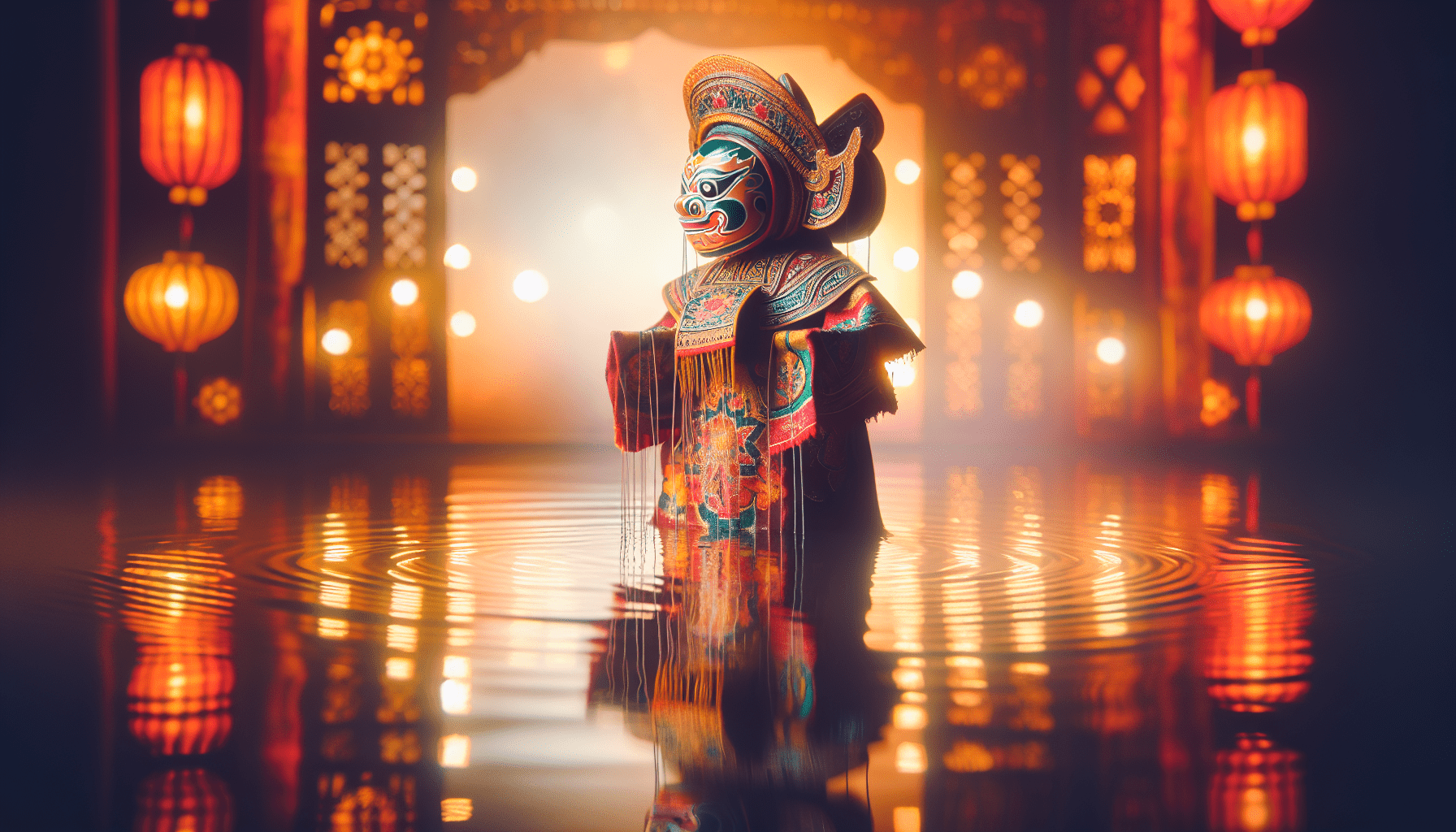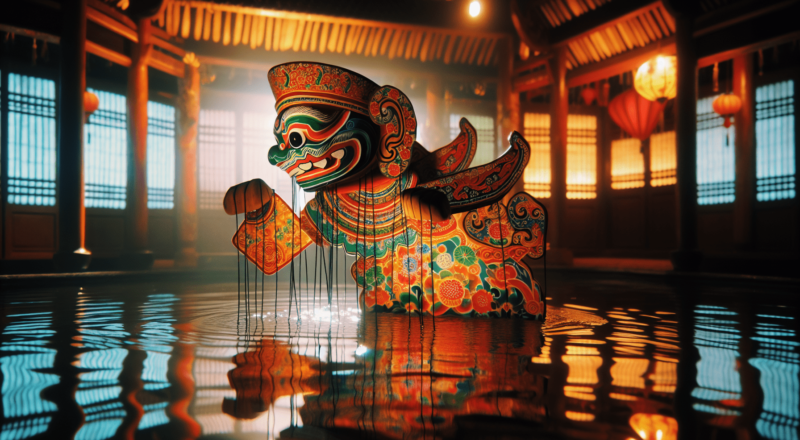Have you ever been captivated by the idea of watching puppets dance on water? The enchanting world of water puppet shows offers a unique blend of artistry, storytelling, and cultural heritage that can take you on a memorable journey. Whether you’re a first-time visitor to a show or simply curious about this traditional art form, understanding the intricacies behind it can enhance your experience immensely.
What Are Traditional Water Puppet Shows?
Water puppet shows are a form of folk theater that originated in Vietnam. This captivating performance art takes place on water, where puppeteers control wooden puppets from behind a screen, all while music and narration create an immersive atmosphere. You might find it fascinating that this tradition dates back to the 11th century, evolving from the rituals of rice farmers who performed during the rainy season to entertain and tell stories.
The Origin of Water Puppet Shows
The history of water puppet shows is deeply woven into the cultural fabric of Vietnam. These performances began in the rural areas, specifically in the Red River Delta. As rice farming communities were established, farmers used their skills to create a form of entertainment using water. Initially, it was a way to pray for good harvests, but soon it became a storytelling medium that reflected the lives and beliefs of the people.
The Craftsmanship Behind the Puppets
The artistry involved in creating water puppets is something you’ll want to appreciate. Each puppet is hand-carved from wood and meticulously painted to display vibrant colors and intricate designs. Traditionally, artisans used local materials, ensuring that the puppets resonated with the cultural values of their communities.
Here’s a simple table that outlines some common types of puppets you may encounter at shows:
| Puppet Type | Description |
|---|---|
| Dragon | Symbolizes power and prosperity in Vietnamese culture. |
| Fish | Represents wealth and abundance. |
| Farmer | Depicts the heart of rural life and agriculture. |
| Fairy | Often portrays supernatural elements in stories. |
| Water Buffalo | A symbol of hard work and agriculture in Vietnam. |
The craftsmanship extends beyond the puppets themselves; the entire stage setting is beautifully designed to reflect rural landscapes, usually with rice paddies, mountains, and village scenes.
What to Expect During a Water Puppet Show
If you’re planning to attend a traditional water puppet show, it’s helpful to know what to anticipate. The entire experience can transport you to another time and place, brimming with color, life, and music.
The Performance Setting
The stage is set in a pool of water that can range from shallow to deep, depending on the venue. The backdrop often features a beautiful landscape illuminated by soft lights. You might notice the unique structure where puppeteers stand behind a bamboo curtain, skillfully manipulating the puppets while remaining hidden from the audience.
The Role of Music and Storytelling
Music plays a vital role in water puppet shows, complementing the visual elements. Traditional Vietnamese instruments like the đàn bầu (a single-stringed instrument) and the đàn tranh (a zither-like instrument) create an enchanting sound that enhances the journey through the narratives.
The stories told are often derived from Vietnamese folklore, emphasizing morals and lessons. They may involve wells, harvests, village life, and mythical creatures.
Audience Engagement
During the show, expect to see lively interactions between the puppets and the audience. The performers employ humor, song, and lively movements that can draw you in, making it nearly impossible not to smile or laugh along.
How to Prepare for Your First Water Puppet Show
Attending a water puppet show for the first time can be both exciting and nerve-wracking. Preparing in advance can help you make the most of your experience.
Research Venue Options
Look for reputable theaters or cultural centers known for their water puppet shows. Places like the Thang Long Water Puppet Theatre in Hanoi are extremely popular and offer a genuine representation of this art form. Reviews and social media can provide insights into the best places to go.
Understand the Show Schedule
Before arriving, it’s essential to check the showtimes as they can vary by day and season. Booking your tickets in advance ensures that you secure a good spot, especially if you plan to go during peak tourist seasons.
Dress Comfortably
While there’s no strict dress code, wearing comfortable clothing is advisable. Since many shows can last for about an hour, you want to be at ease. Consider bringing a light jacket if you’re attending an evening show, especially if you’ll be near water.
Recommended Water Puppet Shows
To help you with ideas on where to start, here are a few highly recommended spots where you can see traditional water puppet performances.
Thang Long Water Puppet Theatre (Hanoi)
Located in the heart of Hanoi, this theater is famous for its quality performances and welcoming atmosphere. The shows are frequent, and the puppeteers are known for their remarkable skills.
Golden Dragon Water Puppet Theatre (Ho Chi Minh City)
This theater stands out for its lively performances mixed with modern storytelling elements. You might find it appealing if you prefer a more contemporary twist while still experiencing traditional puppetry.
Hoi An Water Puppet Theatre (Hoi An)
If you’re visiting the picturesque town of Hoi An, catching a show here provides a charming setting that adds to the overall experience. The intimate atmosphere often makes it feel like you’re a part of the performance.

What to Look for During the Show
When you finally settle into your seat, keep an eye out for specific aspects of the show that reflect its uniqueness.
Puppet Movements
Puppet movements are the core of the performance. Watch how the water creates a mesmerizing backdrop and assists puppeteers in making the puppets appear as if they are floating or swimming. The fluid movements can be quite captivating.
Synchronization with Music
Notice how well the puppets move in time with the music. The narration, complemented by the rhythm of traditional instruments, brings life to the tales. The harmonious blend of sound and movement truly embodies the essence of this art form.
Audience Reactions
Observe the reactions of those around you, particularly local audiences. The emotional responses can give insight into how the stories resonate with the culture and heritage, enhancing your understanding of the context behind the performance.
Enhancing Your Experience
If you want to deepen your experience further, consider participating both before and after the show.
Ask Questions
If the venue offers a post-show Q&A session or introductions, take the opportunity to ask questions. Engaging with the puppeteers or directors can provide valuable insights into the techniques used and stories portrayed.
Participate in a Workshop
Some theaters may offer workshops where you can learn about puppeteering. Participating in these can give you a new appreciation for the skill involved in this art form. It’s also a fun way to create memories on your trip.
Purchase Souvenirs
Many venues offer souvenirs, such as mini puppets or programs outlining the stories portrayed. Bringing a piece of this unique experience home serves as a wonderful reminder of your time at the show.
Conclusion
Experiencing a traditional water puppet show is like stepping into another world filled with stories, music, and artistry. Once you’ve attended your first show, you’ll likely find yourself enchanted by the ingenuity of the puppeteers, the rich storytelling, and the cultural significance of this art form. Taking the time to understand the history, prepare adequately, and engage actively will ensure that your experience is vibrant and unforgettable.
Can’t wait to see that first puppet glide across the water? Get ready for a magical journey!
